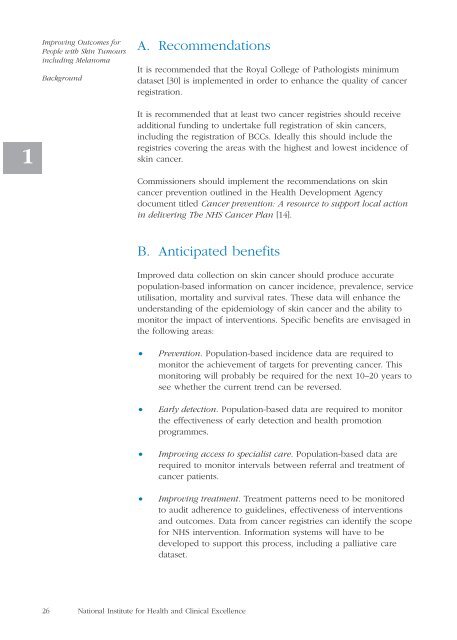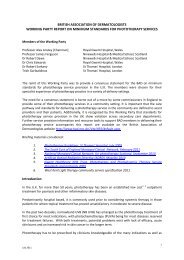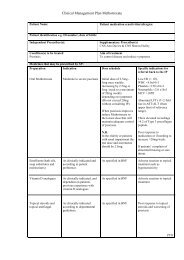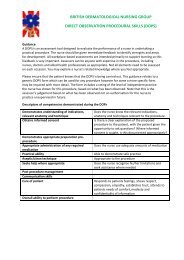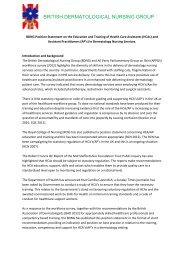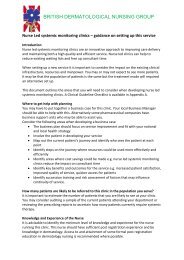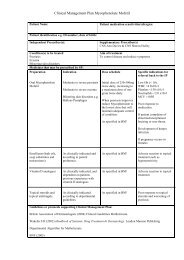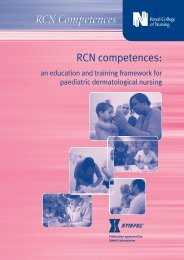Improving outcomes for people with skin tumours including melanoma
Improving outcomes for people with skin tumours including melanoma
Improving outcomes for people with skin tumours including melanoma
Create successful ePaper yourself
Turn your PDF publications into a flip-book with our unique Google optimized e-Paper software.
<strong>Improving</strong> Outcomes <strong>for</strong><br />
People <strong>with</strong> Skin Tumours<br />
<strong>including</strong> Melanoma<br />
Background<br />
A. Recommendations<br />
It is recommended that the Royal College of Pathologists minimum<br />
dataset [30] is implemented in order to enhance the quality of cancer<br />
registration.<br />
1<br />
It is recommended that at least two cancer registries should receive<br />
additional funding to undertake full registration of <strong>skin</strong> cancers,<br />
<strong>including</strong> the registration of BCCs. Ideally this should include the<br />
registries covering the areas <strong>with</strong> the highest and lowest incidence of<br />
<strong>skin</strong> cancer.<br />
Commissioners should implement the recommendations on <strong>skin</strong><br />
cancer prevention outlined in the Health Development Agency<br />
document titled Cancer prevention: A resource to support local action<br />
in delivering The NHS Cancer Plan [14].<br />
B. Anticipated benefits<br />
Improved data collection on <strong>skin</strong> cancer should produce accurate<br />
population-based in<strong>for</strong>mation on cancer incidence, prevalence, service<br />
utilisation, mortality and survival rates. These data will enhance the<br />
understanding of the epidemiology of <strong>skin</strong> cancer and the ability to<br />
monitor the impact of interventions. Specific benefits are envisaged in<br />
the following areas:<br />
• Prevention. Population-based incidence data are required to<br />
monitor the achievement of targets <strong>for</strong> preventing cancer. This<br />
monitoring will probably be required <strong>for</strong> the next 10–20 years to<br />
see whether the current trend can be reversed.<br />
• Early detection. Population-based data are required to monitor<br />
the effectiveness of early detection and health promotion<br />
programmes.<br />
• <strong>Improving</strong> access to specialist care. Population-based data are<br />
required to monitor intervals between referral and treatment of<br />
cancer patients.<br />
• <strong>Improving</strong> treatment. Treatment patterns need to be monitored<br />
to audit adherence to guidelines, effectiveness of interventions<br />
and <strong>outcomes</strong>. Data from cancer registries can identify the scope<br />
<strong>for</strong> NHS intervention. In<strong>for</strong>mation systems will have to be<br />
developed to support this process, <strong>including</strong> a palliative care<br />
dataset.<br />
26<br />
National Institute <strong>for</strong> Health and Clinical Excellence


